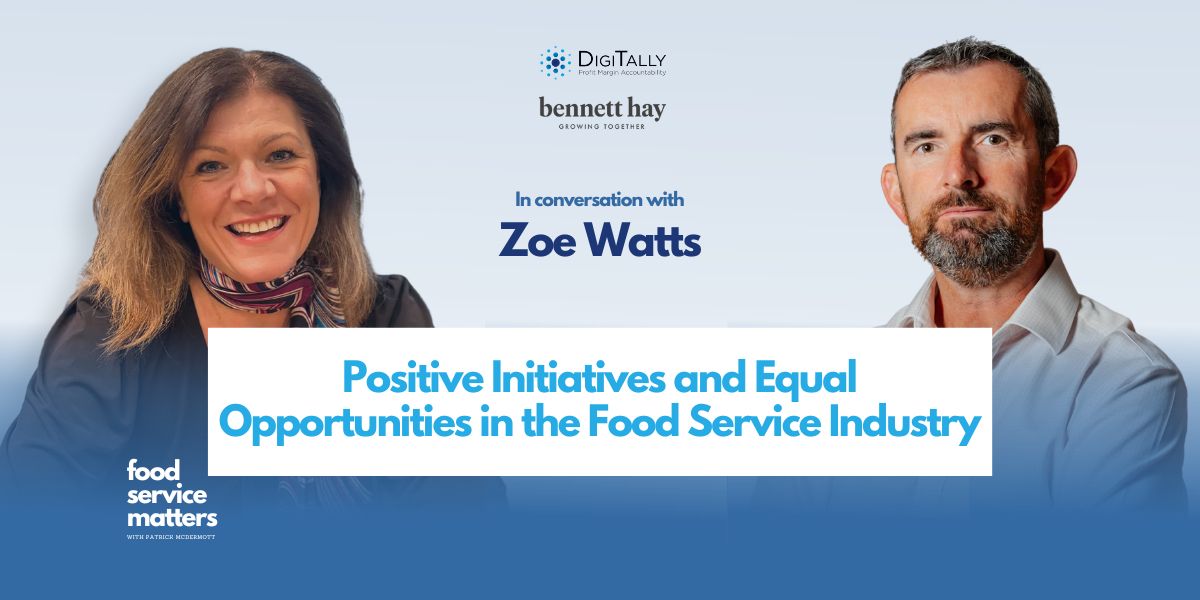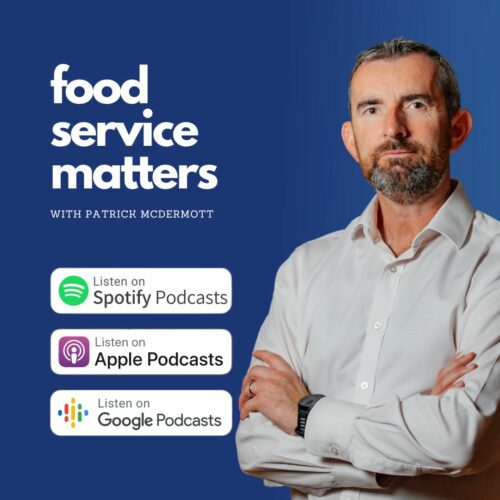
As concerns over corporate social responsibility reach new heights, industries nationwide are grappling with a dual challenge: focusing on inclusivity in the workplace as well as implementing sustainable environmental practices.
And the food service industry is no exception. What’s more, in the aftermath of the COVID-19 pandemic, the way forward is not easy. How can businesses balance critical environmental and social priorities in this ever-changing landscape?
In a recent episode of the new Food Service Matters podcast, host Patrick McDermott talks to Zoe Watts, Managing Director of Bennett Hay, an independent London-based company specialising in the provision of food, event and reception services within office spaces.
Zoe describes how the company is creating positive initiatives around sustainability, the reduction of food waste, and equal opportunities using training programmes in the food service industry.
Training programmes for people with special needs
The COVID-19 pandemic highlighted long-standing social inequalities and, in turn, heightened awareness and activism across society to address these issues. One area of increased focus is the recognition that businesses must create more diverse, inclusive environments.
In the food service industry, companies like Bennett Hay are partnering with organisations that provide training for vulnerable individuals. Bennett Hay works with SEND Coffee, a non-profit organisation that trains young adults with Special Educational Needs or Disabilities to become baristas.
“It’s a 46-week programme that these young adults participate in, and the quality of the training and mentoring is phenomenal,” Zoe explains.
It all starts with the basics, like helping trainees decide on appropriate outfits for work and escorting them to the facility. Then, the programme continues with mentorship on building work skills and, finally, finding permanent job placements.
“We’re actually now at the next stage of our partnership with SEND,” continues Zoe, “where we’re looking to place the beneficiaries across our workplace environment. For those adults, it’s a very safe working space where they can be nurtured, but their mentor will still support them in those initial weeks and months of their new work placement, which is fantastic.”
These types of partnerships present a win-win situation, especially at a time when attracting talent to the food service industry is a major challenge. Zoe highlights the dilemma when asked about current challenges in the food service business.
“It’s all about recruitment,” she says. “For me, every single company has to consider how to attract new people into our sector because I don’t think COVID-19 helped with the reputation of the hospitality industry as a whole.”
Within this context, training programmes in the food service industry can be pivotal. Not only do they provide valuable skills and confidence to marginalised groups, but they also benefit businesses looking to recruit responsible, community-minded workers and promote equal opportunities in the trade.
Fighting food waste using imperfect produce
Although strides are being taken towards sustainability in the food service industry, the cost of going green still presents a significant obstacle, with food waste being a serious concern. Zoe explains how Bennett Hay is combatting this issue creatively.
“We’ve teamed up with a supplier called Angry Monk, which provides us with imperfect, typically surplus, fruit and vegetables. For example, we might get a whole pallet of red peppers, which has been rejected by supermarkets because a few peppers have a bit of green on them, but there’s nothing actually wrong with them.”
Rather than let this fresh produce be thrown away, it gets added to menus in an effort to reduce food waste, as well as company costs. This doesn’t come without its challenges for kitchen staff, though, as Zoe adds: “With Angry Monk, we don’t necessarily know from one day to the next what produce they’ve got.”
However, Zoe also emphasises that this is exactly why companies need to train their staff to be adaptable. “It’s about training our chefs and managers to be really flexible,” she highlights. “Find out which of this beautiful produce is there for the taking, stop it going to waste, and get it on your menus.”
Continuing corporate social responsibility efforts
Innovative initiatives such as those described by Zoe Watts set leading food and beverage companies apart as they demonstrate corporate social responsibility while maintaining ethical and efficient operations.
As the food service industry faces ongoing cost challenges, anti-waste efforts like these also create opportunities to improve a business’ bottom line – which is why companies are increasingly turning to technology for help.
Clever tools like DigiTally help businesses gain data insights into their waste streams, thus enabling them to make key operational changes that have a huge impact on both sustainability and profit margins. As such, the business benefits are clear, but the societal merits can prove just as impactful.
To listen to Patrick’s full interview with Zoe Watts, check out the Food Service Matters podcast on Spotify, Apple Podcasts or Google Podcasts.

Patrick is CEO of DigiTally, which is playing an increasingly important role as an intuitive and interconnected simple Food Service software that helps save time, lead to more margin and combat food waste. Keen to learn more? Let’s talk! Book a 30-minute call with Patrick and get your demo set up today.


